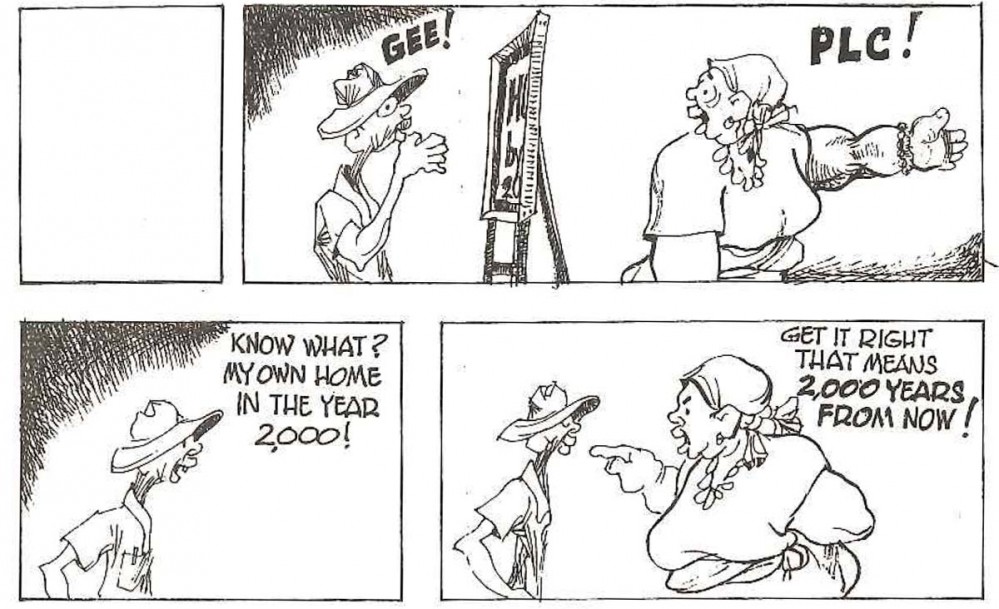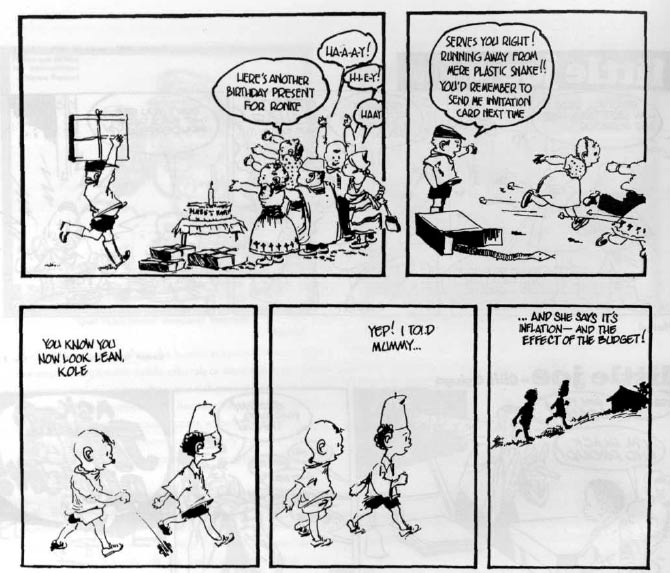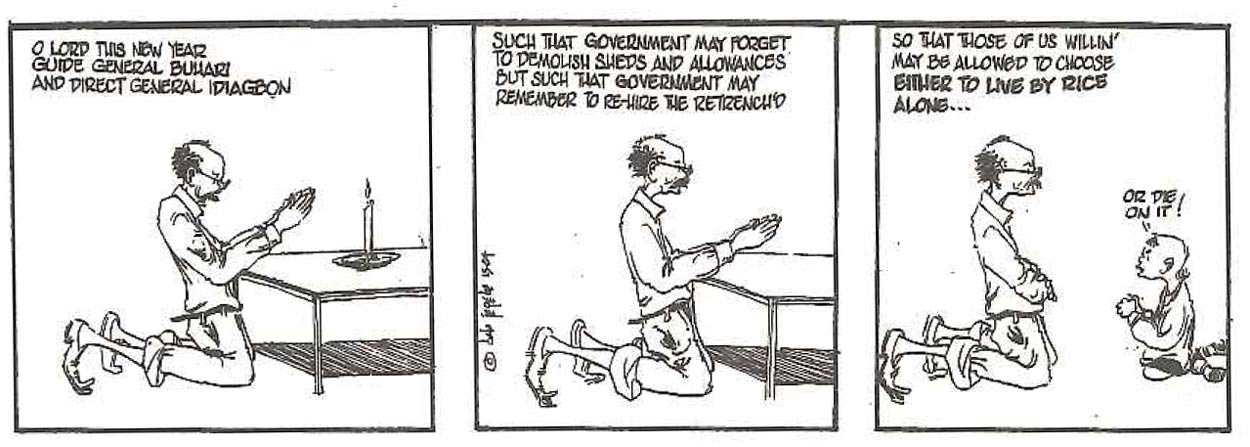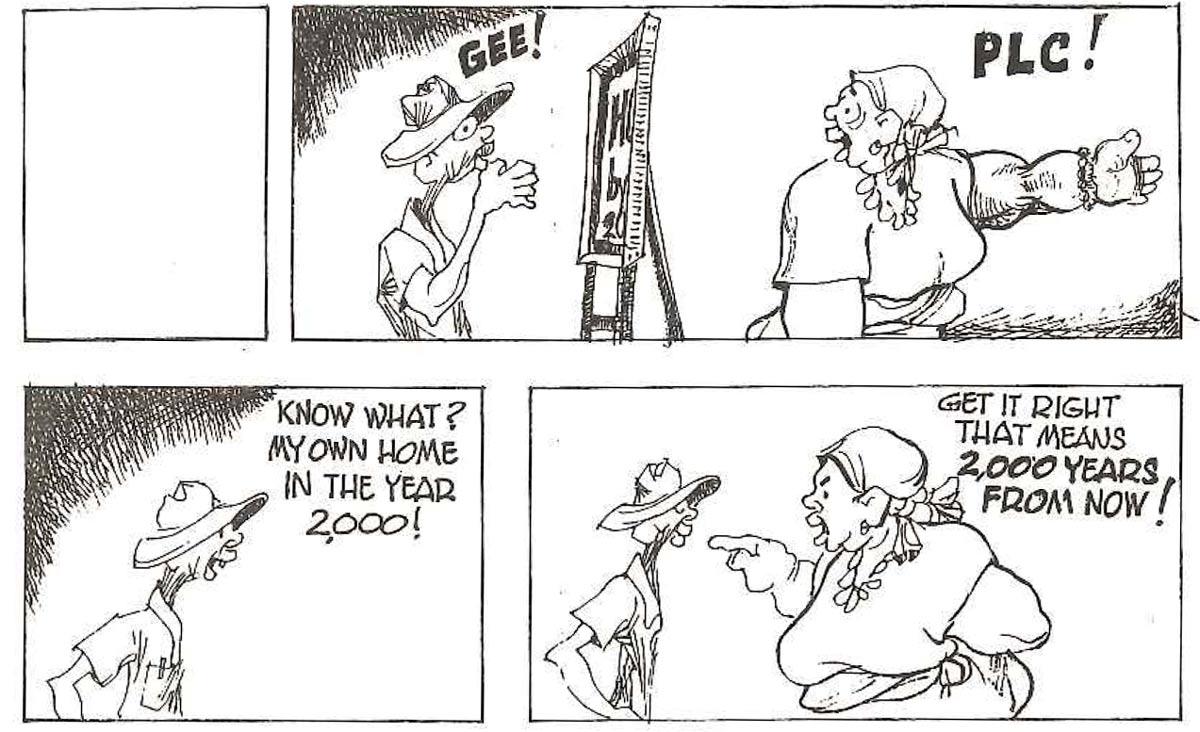Dele Jegede (who writes his name as 'dele jegede') is a towering figure in Nigerian art. He is a socially conscious painter, whose work draws inspiration from traditional African painting and sculpture, but is also influenced by hip-hop subculture. His work reflects his personal life, but also addresses the poverty, corruption, political dictatorships and environmental problems which ravaged his country. No other 20th-century Nigerian artist has done more to promote Nigerian art to the Western world than him. Jegede holds several university degrees and works as an art professor at the Indiana State University, a remarkable feat for someone from such humble beginnings. Jegede is also well-known as a newspaper comic artist and political cartoonist. His best known works are the daily comics 'Flower Power' and 'Kole Omole' ('Kole the Menace'). Even though his active career in these professions only lasted a mere 20 years, he still had a significant impact on the development of Nigerian newspaper cartoons.
Early life and career
Dele Jegede hails from Ikere-Ekiti in the Nigerian state Ekiti, where he was born in 1945. He originally worked as a housekeeper selling firewood. Whenever he met a potential customer, Jegede asked them whether he was allowed to draw their portrait. He eventually earned more income and local notability, enough to invest his money in personal education. Between 1965 and 1969, he studied at the Yaba College of Technology, followed by the Ahmadu Bello University in Zaria in 1973, where he graduated in fine arts. At Indiana University in Bloomington, Indiana in the USA he gained a PhD in art history in 1983. His doctoral dissertation dealt with a previously rarely explored topic: contemporary Nigerian art. He became a Junior Research Fellow at the University of Lagos in 1977 and moved his way up as a director of their Cultural Studies Center. Between 1973 and 1974, he worked as a graphic arts officer at the Northern Eastern State Ministry of Education in Maiduguri.
Flower Power and Kole Omole
As privileged as this position was, most Nigerians only started to become aware of Jegede when he worked as a newspaper cartoonist and art editor for The Daily Times of Nigeria and its sister publication The Sunday Times. He debuted in 1972 and drew two major comic strips, namely 'Flower Power' (1975-1976) and its follow-up 'Kole Omole' ('Kole the Menace', 1976-1979 and 1983-1987). Particularly 'Kole Omole' made him a household name. The comic starred a five-year old mischievous boy, Kole, and his friend Bobby whose juvenile actions were a subtle metaphor for Nigerian politics. As the artist stated himself: "His look, age, and stature grew and shrank in tandem with Nigeria's economic and socio-political undulations. Kole was ostensibly about innocent children. In actuality, he and his company became metaphors for the dilemma that Nigeria found itself in under military dictatorships."
Jegede also published satirical political cartoons in the Sunday Times and Lagos Weekend under the titles 'Pocket Cartoons', 'Deles Opinion', 'Weekend Cartoons' or simply under his own name. The Sunday Concord published his cartoons in color under the title 'Funny Cords'. This was in fact the first color Sunday comics section in a Nigerian newspaper.
Later life and career
In 1986, Jegede held an exhibition titled 'Paradise Battered'. This proved to be a turning point in his life, as his paintings became more political, addressing problems within Nigerian society. The people in his work gained a more caricatural look, to mock their lack of ethics or common sense. Their bodies were elongated, while the titles of his paintings were written in Lagos' local dialect. On 30 November 1989, Jegede was elected president of the Society of Nigerian Artists (SNA) and from 1993 and 2005 he was an art history teacher at Indiana State University, where he was also chairman of the art department. He has since then worked at the Department of Art of Miami University in Oxford, Ohio. He obtained a Fulbright Scholarship in 1986-1987. Jegede is additionally active as a curator, calligrapher and book illustrator.
Legacy and influence
Jegede's impact on the development of Nigerian arts, particularly newspaper cartoons, cannot be underestimated. Both at home and abroad he promoted the cultural life of his country through exhibitions and essays. By discussing and analyzing it from a local perspective rather than the viewpoint of a Western outsider, he provided a fresh and more authentic look. At the same time he serves as a role model for young Nigerian artists by starting off from humble beginnings and working his way up to being a university professor and art critic. Jegede paved the way for numerous Nigerian comic artists and cartoonists by being a self-made independent artist. His way of criticizing the dictatorial and corrupt regimes of his country through cartooning – a medium not taken seriously by those in power – proved to be inspirational to many.
Some of his cartoons were used to illustrate part of Trevor Schoonmaker's biography 'Fela: From West Africa to West Broadway' (Macmillan, New York, 2003) about Nigerian singer and activist Fela Kuti. In 2014 Jegede was subject of his own biography, namely 'Art, Parody and Politics : Dele Jegede's Creative Activism, Nigeria and the Transnational Space' (Africa Research & Publications, 2014) by Adérónké Adésolá Adésànyà and Toyin Falola.






